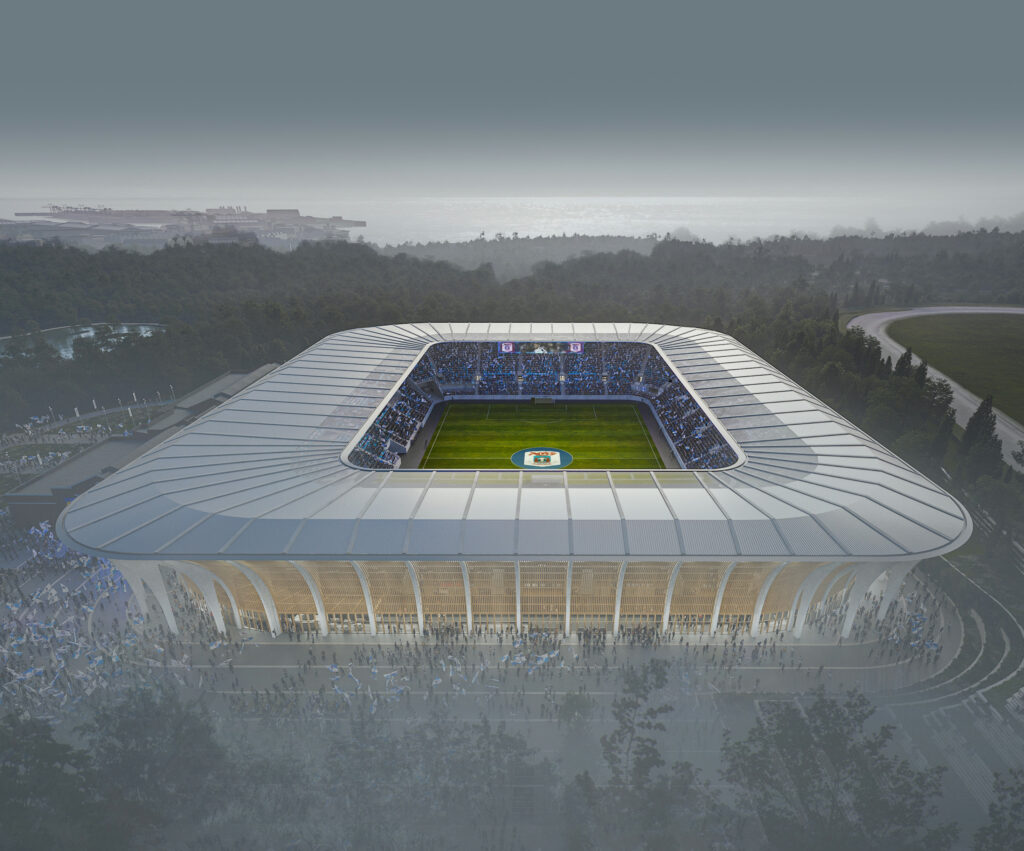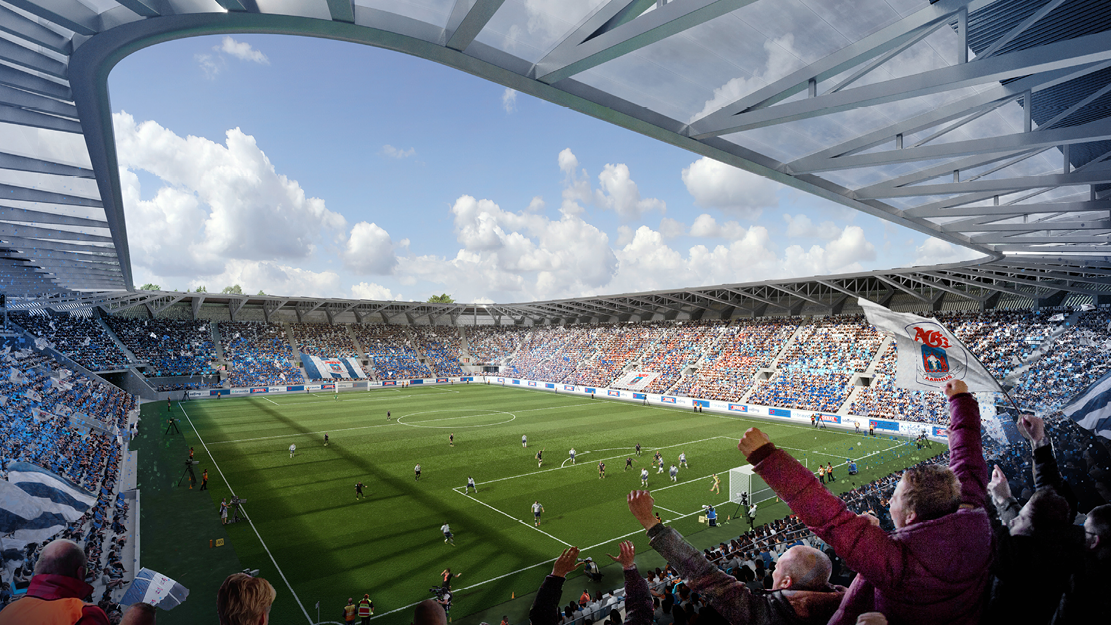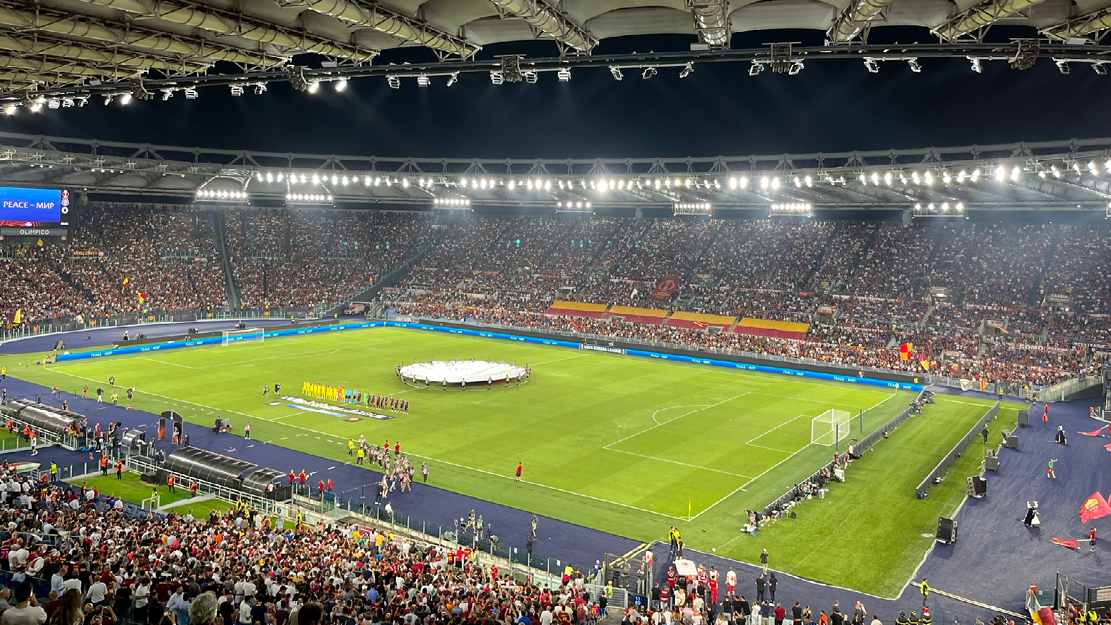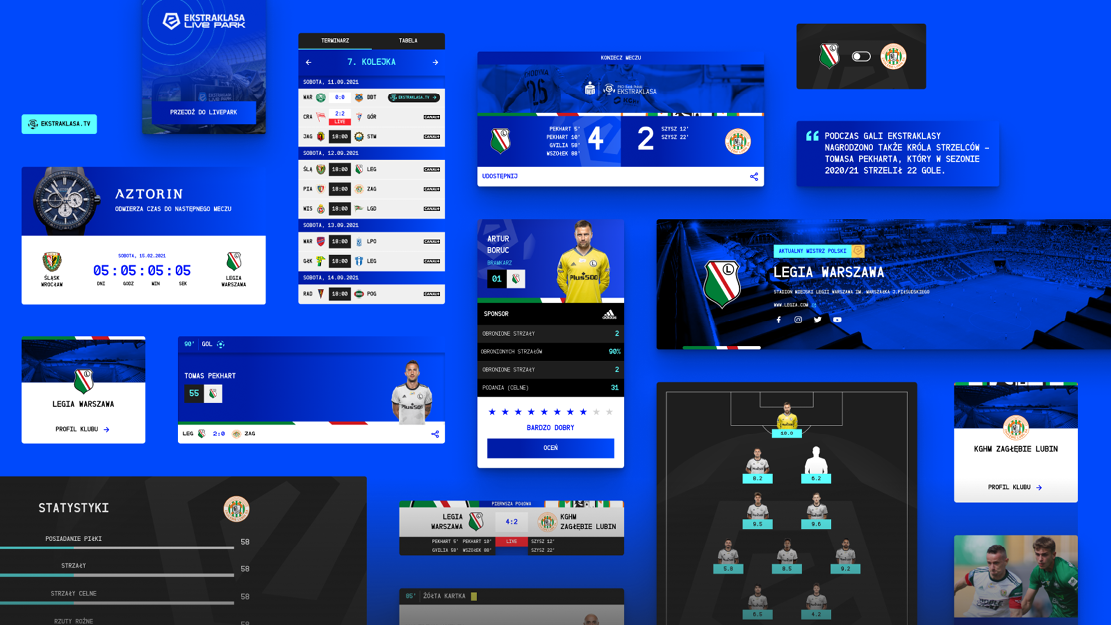In this article, FBIN talked with Søren Højlund Carlsen, Head of Media and Communication of AGF Fodbold about the decision behind the construction of a new stadium, the benefits and the overall challenges. We also discussed AGF, its mission and objectives.
By Bruno Ivich.
What were the main factors behind the decision of the construction of a new stadium?
Søren Højlund Carlsen: We as a club have wanted a proper football-stadium instead of the athletic stadium, that has been our homeground for many years. Now it is real and the vision is here. It started two years ago when two local donors; Lind Invest and the Salling Foundation put forward the financial means for the project and therefore the project could start. We are so grateful to the donors for making this happen.
Right now, our club is maxed out with sponsors and hospitality, so also commercially the decision to build a new stadium definitely makes sense. But it will mainly be of benefit to the fans who in the future could support the club in our modern. football-stadium close to the pitch.
With the new football-stadium, AGF will fulfill a long-standing wish; a stadium without a running track, so that the audience is closer to the pitch. This fact simply creates a better atmosphere, improving in general the comfort.
The Arena of the Forest will have a capacity of 20,000 seated spectators and there is a possibility to expand to 24,000 seats. Overall, we want to bring more sponsors and hospitality, and without a doubt more space in the stadium will allow us to grow. For the last 8 years we have had record sponsorship growth in Denmark with 70 million Dkr. in revenue, which is about 9.4 million euros.
What are the main differentiators of this new stadium in comparison with others?
Our new stadium will be a proper football-stadium, with the characteristics of being sustainable with recycled and old materials that come from our previous stadium. The sustainable part is very important for us as a club.
The main differentiator is the design and how it blends into the forest and connects with the context of the city. It will use plenty of wood, and we will also have a plaza with museums, stores, among other things. The stadium will be a center for events and concerts mainly during the summer time. The overall cost budget of the stadium is 585 million danish kroner which is approximately 80 million euros.
I would say that the new stadium matches AGF and Aarhus fantastically. It respects the surroundings in the forest, but at the same time has a majestic expression in the way it rises. It is modern in the use of wood , but at the same time it blends with the old stadium building.
There is a lot of functionality around the design, where you can work with the density, so you can adjust according to wind and draft. Another good detail is the overhang from the arches, which means that you will be standing in dry weather when you are waiting to enter. A third is that the corridors are level-free and uninterrupted. It is a beautiful stadium.

How do you think this new stadium will help boost revenues and the growth of the team?
The challenge right now is that we reached our limit with hospitality packages and sponsors. The previous stadium could host 1000 VIPs, and now we are expecting to host 2500 VIPs in the future. So for sure, the new stadium will boost revenues commercially and allow us to keep growing. With reference to match revenues, we will also have 24,000 seats, which is more than now.
In your opinion what will be the main benefits of a new stadium as well as it challenges?
Overall, the benefits are evident, we want to offer our fans a great stadium that will support the growth of the club. The Arena of the Forest will focus on giving out a spectacular experience to fans and other visitors. The main challenges will be to work around having no stadium for a while and finding a new place to play while our stadium is being constructed.
In a few sentences how would you describe the new stadium?
The Arena of the Forest is a dream come true. It is a collective effort of the donors, the club, fans, private institutions and municipalities to make a stadium that will blend so beautifully in with the forest and the city of Aarhus.
Is it common lately to see new stadiums in Denmark being constructed?
It is not common to see new construction projects around stadiums. The last new one was in 2017. Of course there have been some smaller stadium projects over the last 20 years. The majority of the stadiums in Denmark are owned by municipalities, in our case it is the same and we have a lease for many years going forward.
What are the main values and concepts you want to transmit through this stadium?
We want to transmit what the stadium represents and what our city is. Thus, the main values are sustainability in a unique location that is a landmark of our club and its origins. This project will bring enjoyment to our fans and we are proud that the stadium will blend in well with the city and our spectacular forests.
How would you describe the fans of the team?
I think our fans are the most loyal and fantastic fans in Denmark. For example, we have been relegated 3 times in the last 20 years and they still have always supported us. We have a record attendance for the club with 14,000 spectators per match in the Danish League this season. Aarhus is a one club city where fans love football and are extremely passionate.
Please tell us more about the team, its mission, vision and objectives?
AGF is one of the oldest clubs in Europe, founded in 1880. We have been 5 times champions of Denmark, our last one was in 1986. We also have won the most national cups with 9, our last one was in 1996. For the last 25 years we have been struggling a bit, but for the last 6-7 years we have almost always been competing for the top 6 in the table in order to qualify for the playoffs. We are confident that our hard work and the support of the community will allow us to provide great results for the fans in the future at the new stadium.






